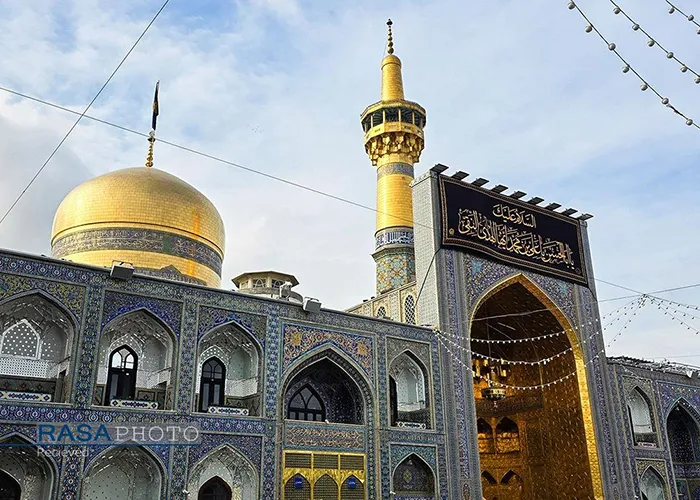Topic of the Week – Volume01 Issue19
In the Name of Allah, the Most Compassionate, the Most Merciful
Media Literacy in Modern Society and Its Role in Islam
Seyed Hashem Moosavi
Media literacy has become one of the essential tools in today’s world, enabling individuals to critically evaluate the information they receive daily and make appropriate choices for themselves. The importance of media literacy has doubled with the expansion of mass media and social networks, and particularly in Islamic societies, this issue, alongside religious teachings, can serve as guidance for content consumption. This article explains the concept of media literacy, its importance in today’s society, and examines it from a religious, especially Islamic, perspective.
Defining Media Literacy
In its simplest definition, media literacy is the ability to understand, analyse, and use media intelligently. With the growth of media and social networks, media literacy has become a skill enabling individuals to critically analyse and assess the information they receive and understand its impact on society and their personal lives. This skill includes understanding different media messages, distinguishing real news from fake, recognizing their purposes, and identifying ways media may influence the beliefs and views of their audiences. Media literacy encompasses not only scientific and technical media knowledge but also protects individuals against emotional and psychological impacts.
The Need for Media Literacy in Today’s Society
With the development of digital media and social networks, access to information and news from various sources in a short time has become possible. However, this rapid spread of information also brings dangers, such as misinformation, malicious rumours, harmful advertisements, and deliberate distortions. In such conditions, media literacy becomes increasingly important. Media literacy helps transform a passive consumer into an intelligent one, capable of analysing and selecting information according to personal and social needs. It helps individuals protect themselves from the harmful effects of media, such as anxiety, stress, and even moral deviations.
Media Literacy from a Religious Perspective, Especially Islam
Islam highly values knowledge and promotes reflection, urging Muslims to investigate and consider the information and news they encounter rather than accepting it without awareness. Many Quranic verses, including verse 6 of Surah Al-Hujurat, emphasize the need to verify information, stating,
“«يَا أَيُّهَا الَّذِينَ آمَنُوا إِن جَاءَكُمْ فَاسِقٌ بِنَبَإٍ فَتَبَيَّنُوا أَن تُصِيبُوا قَوْمًا بِجَهَالَةٍ فَتُصْبِحُوا عَلَىٰ مَا فَعَلْتُمْ نَادِمِينَ»،
O you who have believed, if a wicked person comes to you with information, investigate, lest you harm a people out of ignorance and become regretful over what you have done.” This verse highlights the importance of media literacy and the need for sound knowledge of information sources.
Islam’s Suggested Framework for Media Literacy
Islam, emphasizing principles like honesty, fairness, and justice in information transmission, has set guidelines for media use, which include:
- Conscious Listening and Viewing: The Quran frequently emphasizes conscious listening and self-awareness in receiving information, which implies responsible use of media and the information we receive.
- Respect for Others’ Rights: Islam strongly advocates respecting others’ rights and privacy. Given media’s powerful reach, news about people’s lives must be handled carefully to prevent disclosure of private information.
- Providing Constructive Content: Islam values growth and awareness, always advocating for the expansion of knowledge, wisdom, and personal and social development. Media, as a tool for spreading knowledge and awareness, should aim to enhance society’s level of understanding, prioritize publishing constructive and beneficial content, and promote ethical values. It should avoid disseminating worthless or misleading content.
- Responsibility in Message Transmission: Islam places great emphasis on the principle of trustworthiness in conveying news and urges individuals to act responsibly when sharing information. For example, the Prophet Muhammad (sa) said, “«المؤمن یکونُ أمینا» A believer should be trustworthy.” In another instance, he said, “«المَجالِسُ بِالأَمانَةِ وَ إفشاءُ سِرِّ أخیكَ خیانةٌ» Private gatherings are a trust and revealing your brother’s secret is a betrayal.” This means that personal and private conversations are entrusted to those present and should not be shared without permission[1]. Therefore, the principle of trust and responsibility in transmitting information is a fundamental concept with many applications. In the context of media, it clearly underscores the need to verify the accuracy of information before sharing it with others.
- Prohibition of Spreading Rumours and False Information: Islam strongly condemns and prohibits the dissemination of rumours and false information. In a hadith, the Prophet Muhammad (sa) stated, “«لَیسَ الخیانَةُ و الِكذْبُ فیالدّین» There is no place for betrayal and lying in faith.[2]” In another saying, he described a liar as follows: “كَفَى بِالْمَرْءِ كَذِباً أَنْ يُحَدِّثَ بِكُلِّ مَا سَمِعَ It is enough for a person to be deemed a liar if he narrates everything he hears (without investigation).[3]” This guidance teaches that spreading any news without verifying its authenticity is forbidden, as it is a path close to falsehood and risks labelling the spreader as a liar.
In Islamic history, we find interesting examples of restrictions placed on certain hadith narrators who relied on weak sources. For instance, it is reported that Ahmad ibn Muhammad ibn Isa, a scholar during the time of Imams al-Ridha, al-Jawad, and al-Hadi (as), expelled Al-Barqi [4]from the city of Qom due to his reliance on weak narrators[5]. Here, we can claim that the establishment of Ilm al-Rijal (the Science of Narrators) in Islam has roots in media literacy, as the discussions within this discipline create conditions and frameworks to examine the authenticity of reports, their narrators, and the context of the information. This critical approach enables a reliable assessment of distinguishing true from false reports.
Critical Analysis and Rational Thinking: Islam has always encouraged reflection and contemplation on divine verses and the world around us. This critical analysis and rational thought are also crucial in media literacy, enabling Muslims to assess media content and avoid falling prey to rumours or false beliefs.
Media Literacy as a Tool for Preserving Religious and Cultural Identity
In addition to the points discussed, media literacy can also serve as a tool for preserving the religious and cultural identity of Muslims. In a media environment with vast cultural diversity, having awareness and media literacy helps individuals avoid content that conflicts with their religious and cultural values while simultaneously promoting their own local and religious culture. This enables Muslims to utilize modern media resources while focusing on maintaining and strengthening their identity.
Conclusion
Media literacy is one of the essential needs in today’s world, helping individuals distinguish between true and false information and protecting them from misinformation and rumours. This skill is also crucial in Islamic societies, as it serves as a religious and ethical tool for intelligent media engagement. From an Islamic perspective, principles like investigation, respect for others’ rights, and responsibility in sharing information align well with media literacy. Overall, media literacy in Islam serves as a valuable tool for protecting individuals and society from the negative effects of media and fostering religious and cultural identity.
[1] . Bihar Al Anwar, V.77, P.89
[2] . Mawa’idh ‘Adadiyah, P.10
[3] . Mizan Al Hikmah, Rayshahry, V.1, P.66
[4] . Abu Ja’far Ahmad ibn Muhammad ibn Khalid al-Barqi, commonly known as Abu Ja’far al-Barqi, was a hadith scholar, historian, and author of the third century AH, associated with the Imamiyyah (Shi’a) tradition.
[5] . Akhlaq & Irfan, Hamid Parsa Niya, P.60
editor's pick
news via inbox
Subscribe to the newsletter.




